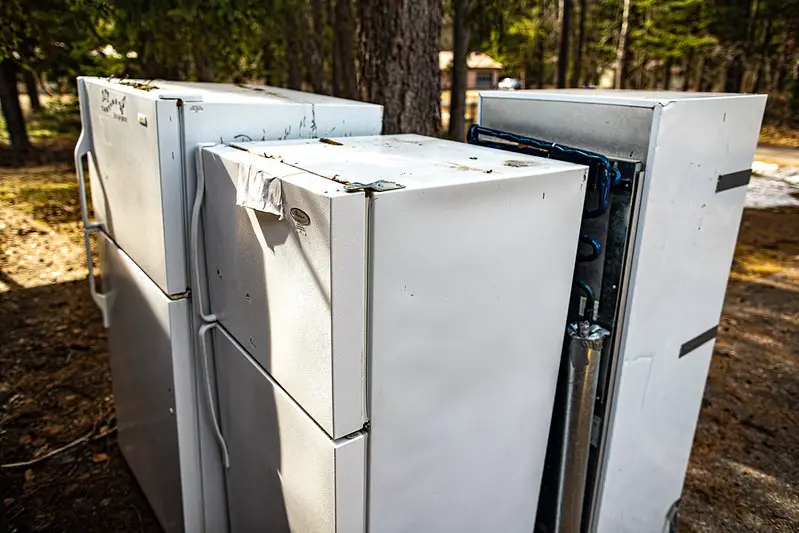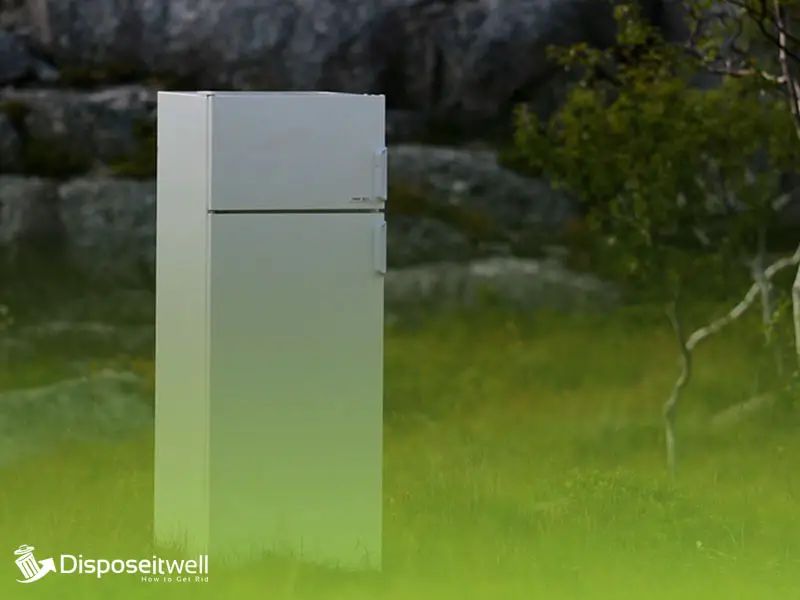Every day, millions of outdated or broken household appliances, including refrigerators, are replaced worldwide. The disposal of these appliances, especially refrigerators, can pose significant environmental challenges if not handled correctly. Refrigerators, with their complex composition and harmful substances, need particular attention during disposal.
In this article, we will walk you through the steps involved in responsibly disposing of a refrigerator. By the end, you’ll understand why proper disposal matters and how you can contribute to a healthier planet.
The Importance of Proper Refrigerator Disposal
Improper disposal of refrigerators not only contributes to landfill congestion but can also cause environmental damage. Refrigerators contain harmful substances like refrigerants and insulation foams, which, if released, contribute significantly to ozone layer depletion and global warming.
By disposing of refrigerators properly, we can ensure that these substances are safely removed and appropriately handled. Moreover, the metals, plastics, and glass in refrigerators can be recycled and used in new products, conserving natural resources and reducing the need for more mining and manufacturing. Therefore, proper disposal significantly reduces our environmental footprint.
Understanding Refrigerator Components and Their Disposal Needs
Refrigerators are complex appliances with several different components, each requiring specific disposal considerations:
- Refrigerants: These substances are used for cooling but are also potent greenhouse gasses. Professionals must handle their removal and disposal to prevent them from escaping into the atmosphere.
- Insulation Foams: The foams used to insulate refrigerators often contain HCFCs or HFCs, other potent greenhouse gasses. Like refrigerants, these must be professionally removed and destroyed.
- Metals, Glass, and Plastics: These materials can be recycled and used in manufacturing new products. However, they must be correctly separated and cleaned, which often requires professional recycling facilities.
Knowing what’s inside your refrigerator and how each component needs to be dealt with ensures you’re well-prepared to dispose of it responsibly.
Learn more about How To Dispose Of Refrigerator Water Filter
Preparing Your Refrigerator for Disposal
Before you dispose of your refrigerator, it’s important to prepare it properly:
- Empty and Clean: Start by removing all the contents and giving the refrigerator a thorough cleaning. This will prevent odors and the spread of bacteria.
- Defrost: If your refrigerator has a freezer, make sure to defrost it. This can take several hours, so plan accordingly.
- Secure Doors: To ensure safety, particularly if there are children around, secure the doors of the refrigerator to prevent them from accidentally closing on someone.
Methods of Disposing of Your Refrigerator

Now that your refrigerator is prepared, let’s discuss the available options for its disposal:
- Waste Management Facilities: Most cities have local waste management facilities that handle large appliances. They ensure refrigerants and other harmful substances are safely removed and properly disposed of.
- Appliance Recycling Programs: Many regions have specialized recycling programs for appliances. These programs dismantle the appliances, recycle the recyclable parts, and safely dispose of the rest.
- Retailer Take-Back Programs: Some appliance retailers offer take-back programs. When you buy a new refrigerator, they’ll take your old one and ensure it’s properly disposed of.
A Few More Eco-friendly Practices for Household Appliances
Beyond responsible disposal, there are several ways to be more eco-friendly with your household appliances:
- Buy Energy-Efficient Models:
When purchasing new appliances, look for those with energy-efficient ratings. They consume less power, reducing your carbon footprint and saving you money on utility bills.
- Regular Maintenance:
By regularly maintaining your appliances, you extend their lifespan, delaying the need for replacement and disposal.
- Reuse or Donate:
If your old appliance still works, consider donating it to someone in need or selling it. This way, it continues to serve a purpose and stays out of the landfill.
Conclusion
The disposal of a refrigerator is a task that we should approach with care. As we’ve explored in this article, it’s crucial to handle this responsibly to protect our environment. Each step, from preparing your refrigerator for disposal to finding a proper method of disposal, plays a part in reducing your environmental footprint.
Did you find this article informative? If yes, don’t hesitate to share it with others who may benefit. The more we spread knowledge about responsible disposal practices, the bigger the impact we can make.
Finally, we encourage you to commit to more eco-friendly disposal practices. Together, we can reduce our environmental impact and make the world healthier. Start your responsible disposal journey today!
My name is Ella Vicedomine and I’m the founder of this blog. The aim is to start this informational blog to guide people on how to dispose of waste things around in the house but in the right way.


3 thoughts on “Responsible Refrigerator Disposal”
Comments are closed.